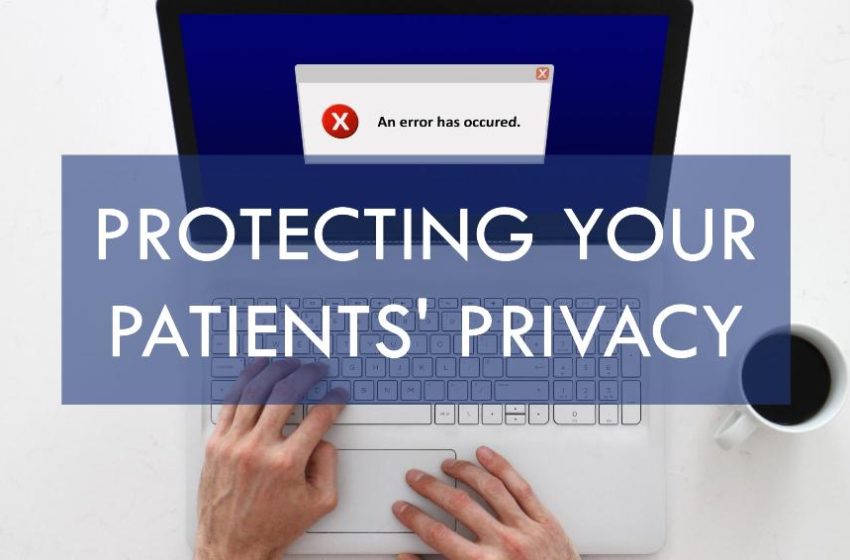How to Manage the Privacy of a Healthcare Website?

Managing privacy and protecting data in the healthcare industry is no easy feat. Delivering quality patient care is the second thing; the primary thing is to secure their data and confidential reports. A healthcare website must meet the strict regulations of HIPAA and GDPR to make a statement in the industry. Healthcare providers can use different techniques to manage privacy and foster data protection. This post will explain how to manage the privacy of a healthcare website. You can follow these techniques to ensure confidentiality. Keep scrolling to learn more!
5 effective ways to manage the privacy of a healthcare website:
A healthcare website contains sensitive data of patients. Hackers are always interested in stealing and manipulating that data for the best of their interests. Strict data protection regulations are applied in this industry to stop bad actors from stealing the data. These regulations come with hefty legal charges and fines if they are not met. A healthcare website must follow effective strategies to foster data protection and keep hackers at a distance. The following list will uncover effective tips for managing the privacy of a healthcare website. Let us dive deep into the list!
1. Implement SSL certificates:
Malicious actors are always busy finding a loophole in your healthcare network to steal sensitive information. However, you must be smart enough to implement SSL certificates to encrypt the data transmitted between your website and the user’s browser. The use of these certificates will help you secure your data like medical records, financial information, and personal details from interceptions. You can maintain the integrity and confidentiality of your website by protecting patients’ data.
A healthcare website with a padlock in the address bar and HTTPS can provide online users with visual confirmation that the site is secure. They can trust you with their confidential data, knowing that you can protect it from external or internal intrusions.
2. Regular website maintenance:
It is necessary to focus on regular website maintenance to manage the privacy of your healthcare website. It helps you spot vulnerabilities and potential loopholes in your website. What if hackers utilize these loopholes and breach the walls to steal your data? You will surely fall into chaos. Weaknesses in your IT network can compromise your patients’ data. Therefore, you should invest in regular website maintenance to fix these errors and keep your site secure.
Website maintenance tasks can be complicated and must be performed frequently. The best you can do is to opt for website maintenance services in Dubai and let experts help you in this regard.
3. Educate your staff members:
Human error can be the biggest threat to security in the healthcare industry. It is wise to train and educate your staff members regarding different security protocols. A small human error can result in chaotic consequences, leading to data breaches and financial losses. Security awareness training is the best idea to equip your employees with the knowledge and skills required to combat these issues.
Your employees must be smart enough to make informed decisions and protect the network from data breaches. They must handle sensitive information with utmost care and implement precautionary measures to stay safer.
4. Implement access controls:
Who can access or modify sensitive information on your healthcare website? The answer to this question defines your access control. Implementing access control in a healthcare website is crucial for limiting the number of users who can access and modify information. You can implement Role-based Access Control (RBAC) to allow authorized personnel only. No one but administrative staff and healthcare professionals should access the network.
Besides access control, you can also implement strong authentication techniques to limit users from accessing the network. MFA requires users to provide certain information before logging into the network. These practices can enhance the overall security and privacy of a healthcare website.
5. Monitor operations:
Logging your access and usage data is crucial for monitoring operations on your healthcare website. It is necessary to monitor which users are accessing what information. You should also monitor applications and other resources to ensure they are accessed only by authorized persons. Logging these areas will help you protect your network from unwanted intrusions.
Healthcare professionals often find it hard to monitor apps and resources. Therefore, they should let experts do the job. Opting for website services in Dubai will help you maintain and monitor your website to avoid unnecessary issues leading to downtime.
Manage the privacy of your healthcare website today!
Your healthcare website is prone to external and internal attacks. It is vital to implement advanced security protocols and set a maintenance schedule to keep things in line. For instance, you can focus on implementing SSL certificates and controlling access to your network. Besides, you can also monitor your operations and regularly maintain your site to avoid problems. Seeking help from professional website maintenance agencies in this matter will help!

